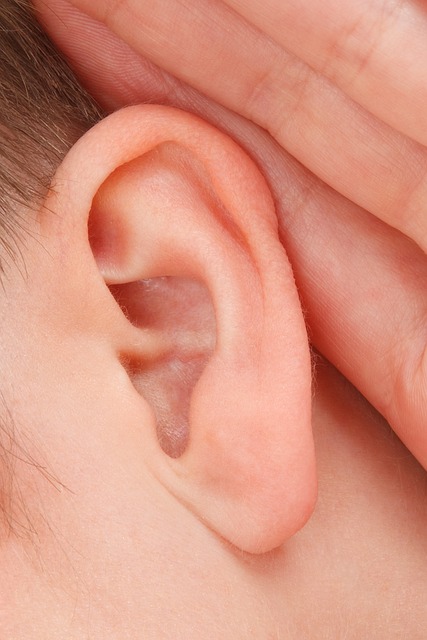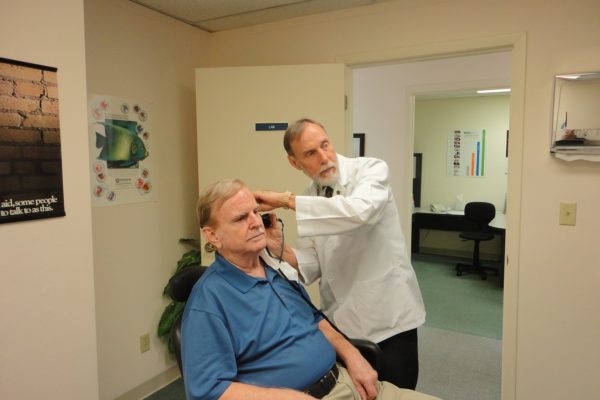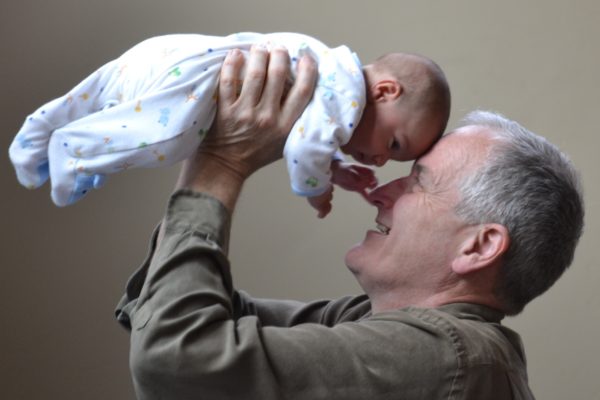

Ann Brenoff/Mar 3, 2017
And it’s only going to get worse!
My recently deceased husband wore hearing aids in both ears. I’m serious when I say they likely saved our marriage. And to be honest, since he lost both of them in the nursing home where he spent his final few weeks, I can’t even be sure he heard me when I told him that I loved him for the last time.
Hearing loss is a big, big deal. And the fact that the population is aging and the number of people living with impaired hearing is projected to jump considerably means it’s about to become an even bigger deal, according to a study published online this week by JAMA Otolaryngology-Head & Neck Surgery.
Almost 25 percent of those ages 65 to 74, and 50 percent of those 75 and older, have a disabling hearing loss, according to the National Institute on Deafness and Other Communication Disorders.
Let me paint a picture for you of what that looks like when you are married to someone who can’t hear well:
Conversation, as you know it, gradually comes to a complete halt. Communication is reduced to a series of nouns shouted out. Restaurants will be picked based not on the quality of the food, but on their acoustics. Going to parties becomes a whole lot less fun because of the noise level of the room; you will eventually resort to taking separate cars so that the person with hearing loss can leave early. The television volume will become a point of contention, as will the distraction caused by closed captions.
Actually, many things become contentious. When people can’t hear well, they frequently interrupt other speakers. They mishear words and jump into conversations inappropriately. And denial of hearing loss is a real thing. “You’re mumbling,” my husband always said in frustration, deflecting his inability to hear.
“Hearing loss is a major public health issue,” said study author Adele M. Goman of Johns Hopkins University.
The study reported that the number of adults in the U.S. aged 20 or older with hearing loss is expected to gradually increase from 44 million in 2020 (15 percent of all adults), to 74 million by 2060 (23 percent), based on population projections, according to a press release.
The biggest increase will be among older adults, Goman told HuffPost. She urged that attention be paid now to prevention strategies. Better to preserve our hearing than deal with its loss.
Hearing loss can be caused by any number of things, including loud blasts of noise, music played at excessive volume, sudden changes in pressure, poking your eardrum with an object, and plain old ear-wax buildup. And yes, of course, aging. The degeneration of delicate inner-ear structures occurs over time. Even medications, such as the antibiotic gentamacin and certain chemotherapy drugs, can damage the inner ear. Diseases or illnesses that come with a high fever,such as meningitis, may harm the cochlea.
According to a survey by the British firm HearingDirect.com ― yes, they sell hearing aids and related products ― ongoing deafness can promote marital breakdown to the point of divorce. The site surveyed about 1,000 people over age 40 who had worsening hearing loss and found that 33 percent said it led to arguments with their spouse. Taking things one step farther, the site noted in an unpublished paper that the divorce rate among couples with one partner suffering from mild hearing loss was similar to current population norms. But marriages where one partner had severe hearing loss ended in divorce at four times the rate of the population norm. Unscientific, for sure, but it fits with my own anecdotal evidence.
I still recall the straw that broke my back when my late husband’s hearing had degenerated to the point I just couldn’t stand it any longer. We were on vacation in Kauai and eager to try a highly recommended new restaurant. The place was so popular that we waited an hour for our table, despite having a reservation. Once seated, the problem became immediately apparent. The sleek new eatery was minimalistic in design: High ceilings and nothing on the walls to absorb the sounds of a bustling eatery. Between the clanking of dishes, the ambience music and the surrounding conversations amplified as people shouted to be heard, it was pure chaos for anyone who, like my husband, suffered hearing loss. His face said it all. We left without ordering, both of us feeling deflated.
I told him that night that I couldn’t continue our lives like this. He got hearing aids in both ears as soon as we got home, and the improvement was astounding.
But there’s something that still needs to change: Medicare should cover hearing exams and hearing aids for those who need them, and currently it doesn’t, with a few exceptions. This safety net that provides medical coverage to those 65 and older omits the things that, arguably, seniors need the most: vision coverage, dental coverage and the ability to correct hearing loss.
The reality is that our increasing longevity is nice and all. But we still need to hear. And for too many of us, that won’t be possible.



